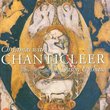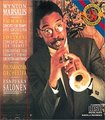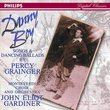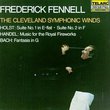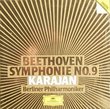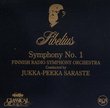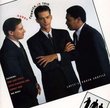| All Artists: Pietro Mascagni, Semyon Bychkov, Jessye Norman, Giuseppe Giacomini, Dmitri Hvorostovsky, Rosa Laghezza, Martha Senn Title: Mascagni - Cavalleria rusticana / Jessye Norman · Giacomini · Hvorostovsky · Senn · Orchestre de Paris · Bychkov Members Wishing: 0 Total Copies: 0 Label: Philips Release Date: 10/11/1991 Genre: Classical Style: Opera & Classical Vocal Number of Discs: 1 SwapaCD Credits: 1 UPC: 028943210522 |
Search - Pietro Mascagni, Semyon Bychkov, Jessye Norman :: Mascagni - Cavalleria rusticana / Jessye Norman · Giacomini · Hvorostovsky · Senn · Orchestre de Paris · Bychkov
CD DetailsSimilarly Requested CDs |
CD ReviewsNorman shines as Santuzza Joseph A. Newsome | Burlington, NC United States | 11/19/2000 (3 out of 5 stars) "Mascagni's verismo masterpiece is one that has fared consistently well on disc: with Domingo, Pavarotti, Carreras, Corelli, and Bergonzi all contributing devoted readings of the opera in good sound, one must applaud any tenor for throwing his efforts in the role into comparison with such company. Unfortunately, Giacomini's contributions to this "Cavalleria rusticana" are its primary faults. Though possessive of a large (but not beautiful) voice with much dramatic conviction, Giacomini does not use his voice in a manner which serves the drama intelligently enough to withstand comparison with, in particular, Domingo (on the RCA recording with Scotto) or Bergonzi: an appropriate example of this is his drinking song in which the top notes are all quite solid, but the impression as a whole is off a singer in the recording studio rather than a passionate lover only moments from his death at the hands of his lover's husband. Baritone Dmitri Hvorostovsky makes a generally good but generic impression. The voice is, of course, beautiful, but the dramatic instincts are not yet in place. The true star of the recording (about which the cover can leave no doubt) is Jessye Norman. Difficult to cast in opera because of the chameleon-like quality of her voice (I have recordings which feature Ms. Norman as soprano, mezzo-soprano, and contralto), Norman makes the role of Santuzza all her own in a way that warrants comparison with the great recorded Santuzzas--Scotto (RCA), Callas (EMI), and Tebaldi (on the hard-to-find Decca recording with Jussi Bjoerling). The voice is always dramatically convincing, and her characteristic security is solid from top to bottom of the range. It is a genuine pleasure to hear the firm lower register combined with the soaring dramatic soprano top register. The orchestra and chorus are fluent enough, although their contributions sometimes threaten to unbalance the drama. Conductor Bychkov, in his first recording of an opera, is committed but not quite competent in leading an ensemble through an opera as overwhelming as this. Still, on the whole, this is a recording which remains competitive because of Jessye Norman's standard-setting Santuzza." An unsuccessful "Cavalleria Rusticana" daniel0302 | New York, NY United States | 08/22/2002 (2 out of 5 stars) "This recording is ill conceived. That ill conception begins with the cover art of Miss Norman wearing what looks like a monk's cowl and striking one of her great tragedian poses. The effect is not that of the vulnerable village girl Santuzza of "Cavelleria", but rather a heroine who has wandered in from another opera. Oddly, that is exactly what Norman sounds like on this recording. She sings with her usual fulsome tone and ravishing beauty, but she is stylistically very out of her element in this repertoire. She is so miscast that the listener is likely to often react to the sounds coming from the speakers in mild disbelief. Hearing her growl in her chest voice and display very noticeable register breaks is not what most opera lovers expect or want from Miss Norman. Hvorostovsky, in one of his first recordings, sings well but he too is not the most ideal of voices for verismo. Conductor Semyon Bychkov has encouraged him to push and over sing, perhaps to better suit the character and the music, but he sounds forced and there is a hard edge to his voice that is not typical of his normally exemplary technique and beautiful singing. Giuseppe Giacomini is the only principle that sounds like he belongs in this opera, but he does not have the right adolescent fresh timbre one really wants from the character, and lacks the youthful salacious ardor required for the opening "Siciliana". Still, he does some very fine - and Italianate - singing, possessing a dark, bronzed tone. The drinking song "Viva il vino spuggiante" and the finale "Mama, quell vino generoso" are great. Rosa Lagazza contributes a well-played Mama Lucia, thankfully lacking in the blousy wobbling one frequently hears in this role. Semyon Bychkov is out of his element along with his soprano and baritone. The famous intermezzo is dull and sounds like "Montovani Plays Opera Classics".The most die hard Jessye Norman fans could possibly be happy with this recording, but lovers Mascagni and verismo operatic style will not be. If you want an idiomatic reading of this opera there are many other fine recordings - Scotto on RCA and Callas on EMI are good places to begin. It would be interesting to know what led Polygram record executives to conclude that making this recording was a good idea."
|

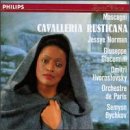
 Track Listings (18) - Disc #1
Track Listings (18) - Disc #1